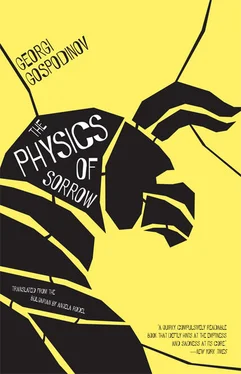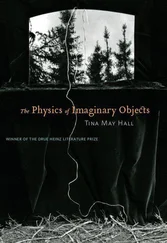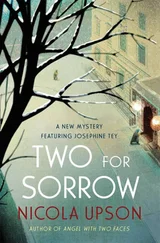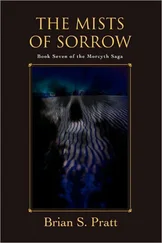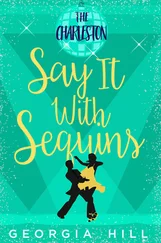(50)
Little Red Riding Hood and Old Age
The fairytale can be told this way as well:
The little girl went to her grandmother and started asking:
Grandma, why do you have such big (and sagging) ears? The grandmother kept silent.
Grandma, why do you have such big (and faded) eyes? The grandmother said nothing.
Grandmother, why do you have such a big (and wrinkled) mouth?
The grandmother started sniffling softly.
Oh, how cruel Little Red Riding Hood was! And the grandmother — because this time it really was her — took off her glasses, wiped away the two telltale tears and managed to rasp out an answer that exhausted all the questions asked thus far: It’s old age, my Little Red Riding Hood.
And opened her toothless mouth in a frightful laugh.
(60)
The old hostel near the train station in Leipzig, overflowing with high school students brought here for the book fair. The elevator, which stops with a creak on my floor, the opening of the door and the bright light from inside (the lamp on my floor was out). A group of girls, juniors and seniors, laughing, pretty, Lolitas, without having read Lolita .
“Going up?” they ask through their laughter.
“Going down,” I reply softly. It sounds so tragicomic that a new volley of laughter follows. A full four seconds before the doors close, parting me forever from that lovely company. Four seconds in which they and I share a common floor. An awkward and beautiful pause, given to me thanks to someone’s benevolence, a pause that I parsimoniously hide away in my notebook.
(51)
That repeatability of life. That sticky, exhausting, murderous, revolting, yet inevitable and sometimes marvelous repeatability of life.
(65,103,039)
While climbing the hill in this city, intoxicated by the colors and scents, I feel my strength slowly leaving me, my body going soft, the muscles in my thighs traitorously trembling (is it visible through my pants?). Not wanting to admit I’ve been beaten, I simply stop and examine a burning-red blackberry bush up close. Then I see an elderly man, did I say elderly, actually, he is my age, embracing a young woman in an innocent summer dress. He is wearing a nice light-blue sweater, old age piles on the clothes, but still it is autumn after all and he is absolutely in season. She is young and is still in summer. Their meeting is the meeting of two seasons. She — generously reaching out her hand from one season, he — standing unsteadily on the edge of the other. A difficult balance, possible only for a short while, a month or two. A few years ago I would have laughed at the man, now he receives my full understanding and a few pangs of envy.
I watch this couple as the day, which is leaning toward its end, obligingly offers me the threadbare metaphor of its sunset. I watch with the full indiscreetness of the situation, then turn my back and slowly head down the hill, having forgotten that just a short while ago I had been planning to get a coffee at the top.
I walk down, thinking about all the European towns huddled like chicks around such a fortress-hill. The hills of Graz, Ljubljana, Zagreb, Thessaloniki, Rome’s seven hills, which I’ve always confused with the teats of that she-wolf, as if she were lying on her back, hills as wolf-tits. I see myself running across them, always at sunset, at different ages.
I remember hurrying to catch a sunset in Lisbon, running up the steep alleys of São Jorge, I reached the top with my last ounce of strength “and suddenly it’s evening,” as that poet wrote. Everything swam before my eyes, I passed out, when I opened my eyes three elderly ladies and a stern-faced nun were leaning over me. I hadn’t blacked out for long, as the ocean was still glowing beneath the final glimmers. I let myself lie there for a few seconds, my eyes swimming, like a sunset marathoner who has collapsed just before announcing his news. But there is no news. I’m growing old.
(58)
Animals eat up time. They lick at it like the blocks of salt they’re given, they nibble away at it like a donkey nibbles at blades of grass, they suck out its fruity marrow like wasps. The twentieth-century donkey, the eighteenth-century donkey and the thirteenth-century donkey do not differ in any away. Could it be the same with people? No. I can recognize a face from 1985 and tell it apart from faces from the 1970s and the 1990s, to say nothing of previous centuries.
(793)
Aya, at three and a half, draws a picture of me in pen. She hands it to me, takes another a look at me, thinks of something and quickly takes the paper back. I forgot to draw those lines on your forehead, she says.
And thus we age.
(42)
Telomeres get shorter and cells die every second. The truth is that science is still searching for the mechanism of aging. The most important cells, brain cells, never regenerate. I am a walking graveyard. Perhaps that’s why I so devotedly tour all the cemeteries of every city. there is harmony in bringing together your own, second-by-second death with the death of the world.
(66)
Grandma, I’m not going to die, right?
(3)
A PAST-TIME MACHINE
The last time I went back to T., I noticed some strange things. They had restored the monument from the 1980s on the town square. I could have sworn it wasn’t there a week ago. I remembered that monument well. A man with a long granite garment, perhaps a cassock, an overcoat or a royal mantle. And with the most nondescript face you’ll ever see. On all important historical dates it somehow inexplicably took on the features of the corresponding hero who was to be honored. On February 19, it became Vasil Levski, on June 2 Hristo Botev. It was also a Bulgarian tsar, most often Simeon, sometimes a monk from Mount Athos, sometimes a partisan guerrilla commander. It was most often saddled with the task of being Georgi Dimitrov or some other (local) communists. A universal monument. It had its overcoat, noble forelock, and high forehead — the minimum requirements for every hero back then. Now they’ve cleaned it up and I could even see that a fresh wreath of braided carnations with two red ribbons had just been placed at its base. I also noticed that the newspapers arrived a day late, the shop clerks had become sullen like back in the day, there was no Internet, while the stores sold only two types of salami and frankfurters.
Given all of this, plus my fruitless experiments on the elementary particles of the past, I was gripped by a gnawing suspicion, which I tried to defang by turning it into a supposedly made-up story.
He opened his eyes with the vague sense that he was awakening into another dream. Could his empathy, which has shown no sign of itself over the past twenty years, be reawakening? Outside he could hear the high school marching band, sounding exactly like it did back then, he could have sworn that they were playing the very same instruments he remembered from his school days. He himself had once played the tuba, standing in the back row next to Nasko with the cymbals, Nasko the Candy Nut with the Blubber-Butt, as his full nickname went. Mr. Blubber-Butt was always a split-second late, a hundredth of a beat behind, which was almost inaudible to the ears up on the platform, but which set Comrade Brunekov, the singing teacher, on pins and needles, and all of us in the band registered that alarming pause, that crack in the music. In the end, the cymbal would nevertheless crash and the simultaneous sigh of relief added yet another note to the march. But that was so many years ago.
Now the music was again thundering down below, all guns ablaze. In the end, it seemed that he had managed to do what he had been trying to do for years — to bring back part of the past, just a little slice, to enter into it and never leave it again. Your body can’t escape from the memory and you remain in your childhood forever. To a certain extent, it’s merciful.
Читать дальше
